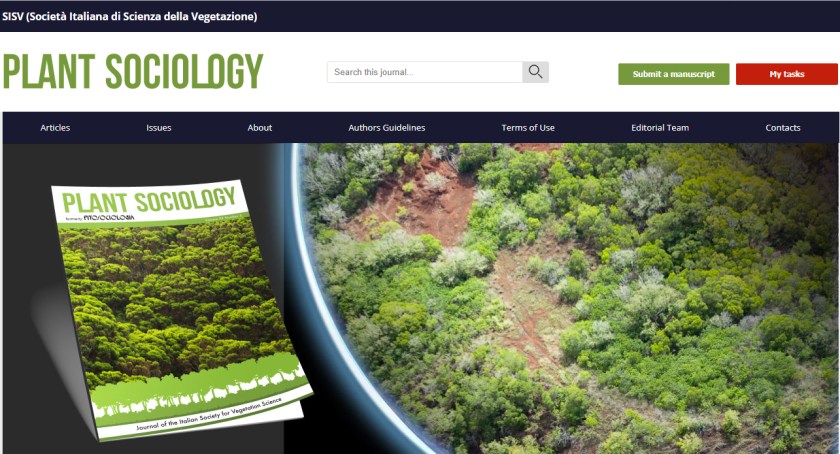In 2015, Research Ideas and Outcomes (RIO) was launched to streamline dissemination of scientific knowledge throughout the research process, recognised to begin with the inception of a research idea, followed by the submission of a grant proposal and progressing to, for example, data / software management plans and mid-stage project reports, before concluding with the well-known research and review paper.
In order to really expedite and facilitate access to scientific knowledge, the hurdles for engagement with the process need to be minimized for readers, authors, reviewers and editors alike. RIO aims to lay the groundwork for constructive scientific feedback and dialogue that would then lead to the elaboration and refinement of the research work well in its early stage.
Recently, RIO published its 300th article – about a software for analyzing time series data from a microclimate research site in the Alps – and at that occasion, the RIO team wrote an editorial summarizing how the articles published in RIO so far facilitate engagement with the respective research processes. One of the observations in this regard was that while providing access to the various stages of the research cycle is necessary for meaningful engagement, there is a need for the various outcomes to be packed together, so that we can provide a more complete context for individual published outcomes.
Read the new editorial celebrating RIO’s 5th anniversary and looking back on 300 publications.
RIO introduced updates to its article collection approach to evolve into a “project-driven knowledge hub”, where a project coordinator, research institution or conference organiser can create and centrally manage a collection under their own logo, so that authors can much more easily contribute. Further, research outputs published elsewhere – including preprints – are also allowed, so that the collection displays each part of the ‘puzzle’ within its context. In this case, the metadata of the paper, i.e. title, authors and publication date, are displayed in the article list within the collection, and link to the original source.
Apart from allowing the inclusion of the whole diversity of research outcomes published in RIO or elsewhere, what particularly appeals to projects, conferences and institutions is the simplicity of opening and managing a self-branded collection at RIO. All they need to do is pay a one-time fee to cover the setup and maintenance of the collection, whereas an option with an unlimited number of publications is also available. Then, authors can add their work – subject to approval by the collection’s editor and the journal’s editorial office – by either starting a new manuscript at RIO and then assigning it to an existing collection; pasting the DOI of a publication available from elsewhere; or posting an author-formatted PDF document to ARPHA Preprints, as it has been submitted to the external evaluator (e.g. funding agency). In the latter two cases, the authors are charged nothing, in order to support greater transparency and contextuality within the research process.
Find more information about how to edit a collection at RIO and the associated benefits and responsibilities on RIO’s website.
Another thing we have revised at RIO is the peer review policy and workflow, which are now further clarified and tailored to the specificity of each type of research outcome.
Having moved to entirely author-initiated peer review, where the system automatically invites reviewers suggested by the author upon submission of a paper, RIO has also clearly defined which article types are subject to mandatory pre-publication peer review or not (see the full list). In the latter case, RIO no longer prompts the invitation of reviewers. Within their collections, owners and guest editors can decide on the peer review mode, guided by RIO’s existing policies.
While pre-publication peer review is not always mandatory, all papers are subject to editorial evaluation and also remain available in perpetuity for post-submission review. In both cases, reviews are public and disclose the name of their author by default. In turn, RIO registers each review with its own DOI via CrossRef, in order to recognise the valuable input and let the reviewers easily refer to their contributions.
For article types where peer review is mandatory (e.g. Research Idea, Review article, Research Article, Data Paper), authors are requested to invite a minimum of three suitable reviewers upon the submission of the paper, who are then automatically invited by the system. While significantly expediting the editorial work on a manuscript, this practice doesn’t compromise the quality of peer review in the slightest, since the editor is still overlooking the process and able to invite additional reviewers anytime, if necessary.
For article types where peer review is not mandatory (e.g. Grant Proposal, Data Management Plan, Project Report and various conference materials), all an author needs to do is provide a statement about the review status of their paper, which will be made public alongside the article. Given that such papers have usually already been scrutinised by a legitimate authority (e.g. funding agency or conference committee), it only makes sense to not withhold their publication and duplicate academic efforts.
Additionally, where the article type of a manuscript requires pre-publication review, RIO encourages the authors to click a checkbox during the submission and post their pre-review manuscript as a preprint on ARPHA Preprints, subject to a quick editorial screening, which would only take a few days.
***
Follow RIO Journal on Twitter, Facebook and LinkedIn.
***
Further reading:




















